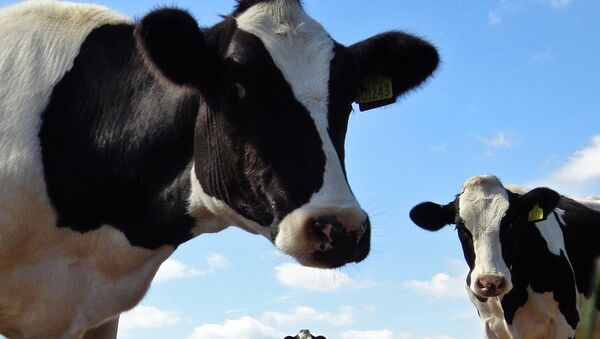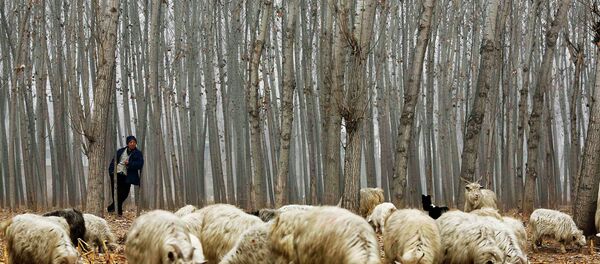The announcement that China is planning to take a novel approach to meeting its citizens growing demand for more beef has garnered mixed reactions.
The state of the art US$31 million factory in the north-east of China will mark an unprecedented industrialization of the meat sector.
OMG…………China plans a cow cloning factory for beef industry https://t.co/1qd3GbwC4O pic.twitter.com/XSYHY7QFC8
— LastChanceForAnimals (@LC4A) November 25, 2015
It will be built by Boyalife Group, a Chinese company specializing in biotechnology focusing on stem cell and regenerative medicine.
Its executive Xu Xiaochun has proudly highlighted the innovation his company is offering.
"We are going [down] a path that no one has ever traveled."
The factory also intends to clone champion race horses and sniffer dogs, capable of finding drugs or people during natural disasters.
It's a long way from when Dolly the sheep became the first mammal to be cloned in 1996, in Scotland.
We just saw Dolly The Sheep at The University of Edinburgh. #clone pic.twitter.com/0D8HFGRF5J
— Brian Long (@brianlong) September 13, 2015
However, it's this bold new exploration of biotechnology within the food industry that is unsettling many.
Some fear that not enough is known about how mass cloning could affect food quality.
And it's not just Chinese consumers who could be affected. China exports meat all over the world, including to Russia.
Public resistance to cloned meat, appears to stem from its association with the world of science-fiction.
Chinese social media has been awash with users expressing reluctance to accept the news.
"Is this meat going to be sold in South Korea or China? If in China, please make our leaders eat it first," one user commented.
And cloned meat does have a poor track record of acceptance by the public and food regulators in other parts of the world.
In 2010, beef from the offspring of a cloned cow entered the US food market prompting an investigation. In the UK all suppliers require special permits to sell cloned meat.
The factory will be ready to start producing cow embryos by 2016.
Whether domestic or international consumers are willing to eat the beef that is slaughtered from those cows, is less certain.



